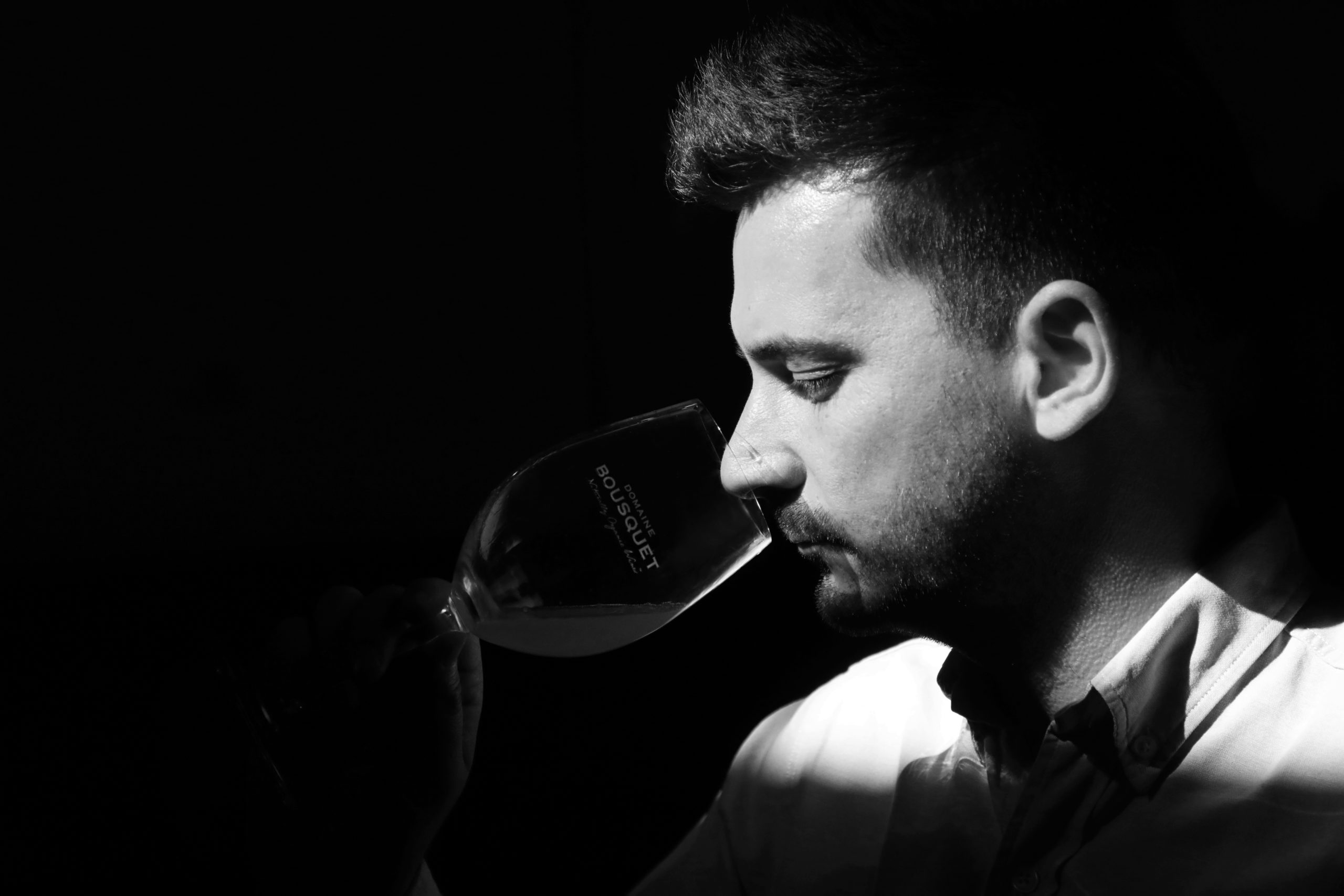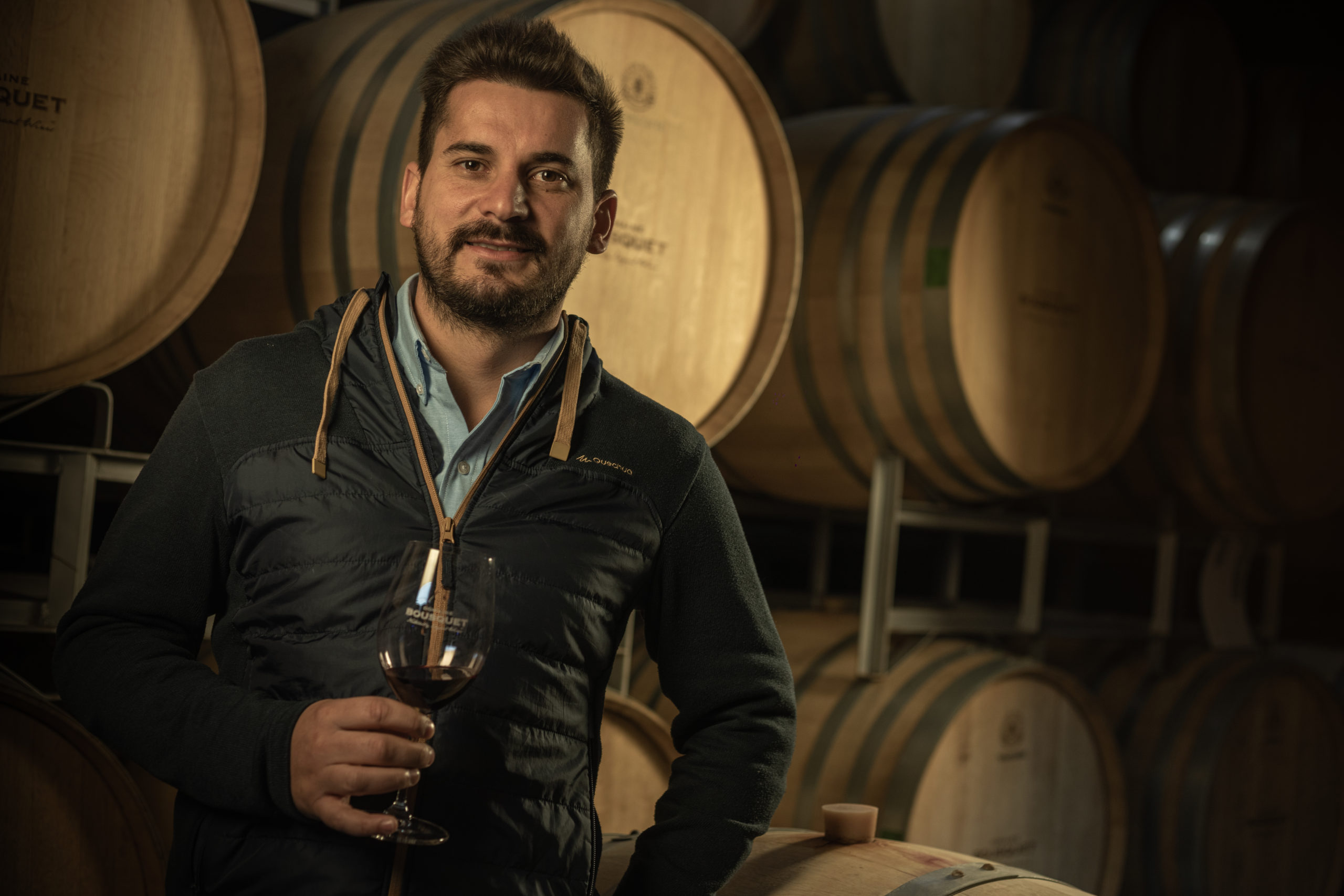Why do you consider Mendoza to be the terroir of Malbec?
Mainly because of its history, its soil, its climate and its people. When viticulture began in Argentina and Mendoza became that productive heart of wine, it was precisely because of the conditions of the province. Today, all that accompanies us as wine makers and as the largest province in Argentina in Malbec production and Mendoza becomes a worldwide reference. In Mendoza we have not only one single Malbec; we have a lot of Malbecs, from different areas. That is why we can develop an industry around it and why Mendoza is a reference for this variety.
You belong to a new generation of winemakers producing Malbec. For you, what is the situation today regarding organic and biodynamic Malbec? Could you tell us a little about this evolution?
Currently, in the latest developments of the world, the perspective is to think about sustainability. Domaine Bousquet has been thinking that way for more than 25 years now. More than 25 years ago we planted vines in Gualtallary, Mendoza, and from that first day we decided to be organic, understanding that future generations have a greater projection if we have a more responsible use of our land.

So, what makes a wine organic?
An organic wine begins and develops with what the earth has to give us. The grapes will not have more than what the earth gave it. That fruit is going to be taken to the winery, it is going to be transformed into wine without any additions. We are going to have an organic Malbec expressing its terroir without any type of intervention or addition. That is for us today an organic Malbec. The consumer that seeks organic wines and understands about them expect that in the bottle.
Speaking of numbers and percentages, how do you see the development of these sustainably based wines in comparison to the traditional production of Malbec?
Organic wine is growing today. We see it in the market not only from consumers but also in the proposals of producers who have transformed their organic wines to be able to supply us with grapes. In our case, growth means that we need organic producers. It is a work that we have been doing for more than 15 years and -as result of our efforts- we have managed to get many producers in the area to convert to organic. In the last 5 years, the amount of organic wines has doubled and the same thing happened with establishments that have been certified to be able to make this type of wine. So, it can be said that organic wine is not a trend but rather a reality and possibly the future of Argentine viticulture. Mendoza and Argentina have a lot of positive weather conditions for the development of organic viticulture and quality wines.
How would you define Argentine Malbec?
I would define Argentine Malbec as something very versatile and with a lot of expressions. Today we no longer talk about a single Argentine Malbec, but rather about different Malbec regions with a lot of subregions. As pioneers in Gualtallary, we already talk about the different regions of Gualtallary, for example.
At first, Malbec opened the doors to the world for Argentine wines in the 90s. Today, the different profiles of Malbec are the magnet that attracts a lot of new consumers that maybe weren´t seduced by that first generalist Malbec conception.

Text by Mariana Alvarez, Tourism Board of Mendoza (EMETUR) in collaboration with Carolina Suárez Garcés (ProMendoza)
Photo Credits: Rodrigo Serrano, Domaine Bousquet Winery